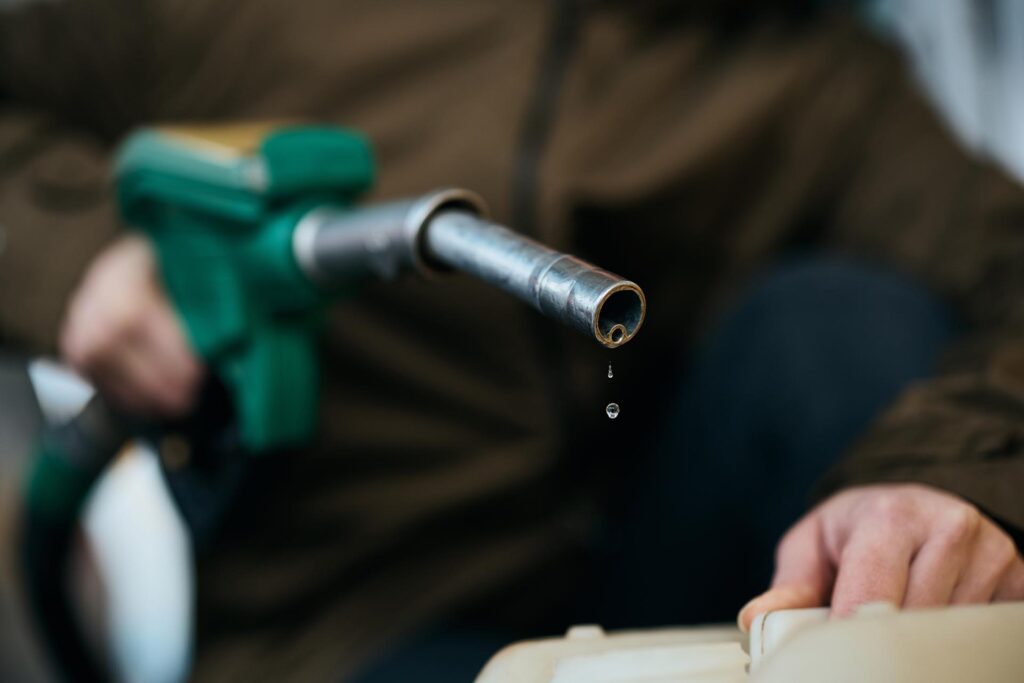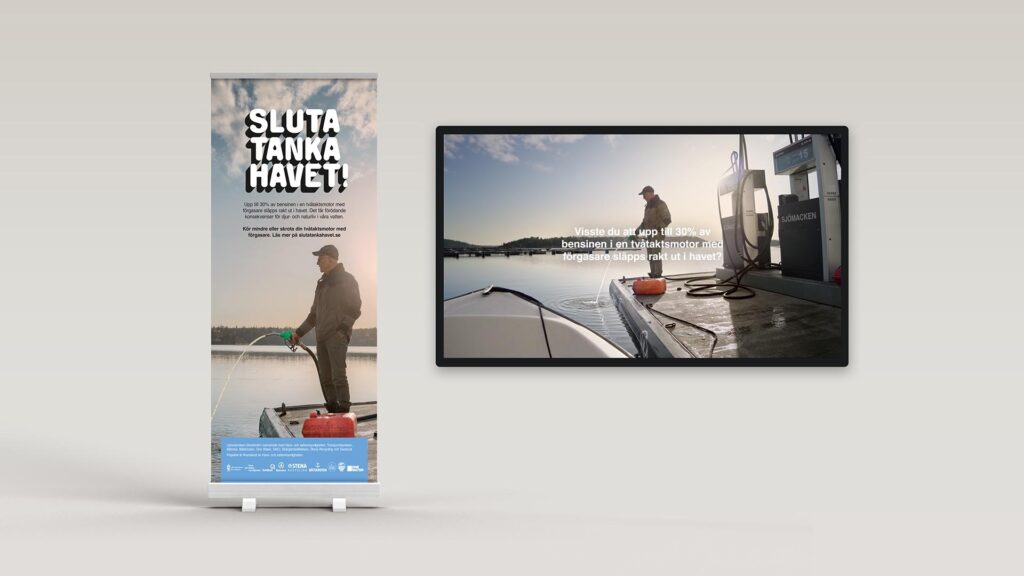Gasoline spills in water are toxic and harm aquatic organisms. Water regulates our climate, absorbing more than 90% of global warming and 25% of the carbon dioxide we emit, but at an alarming rate, water health is deteriorating.
Did you know that for every liter you refuel, the water is also contaminated with up to 3 deciliters of unburned gasoline?! This has devastating consequences for wildlife and nature in our waterways.
The sale of new two-stroke engines with carburetors has been banned since 2007, but there are still over 150 000 of these engines in use on our boats.
This means that one in four boat engines is a two-stroke carburetor engine. These old engines are particularly harmful to marine and terrestrial life.
Since over 150,000 two-stroke engines with carburetors are still in use, it is estimated that around 2,000 tons of gasoline are released directly into our seas and lakes every year. These figures come from POINT.

Now, Hydrated Vegetable Oil (HVO100) is available—a new renewable diesel that offers significant environmental benefits while also being better for engines. By using HVO100, you as a recreational boat owner contribute to long-term sustainable boating.
Poor water quality leads to reduced biodiversity, dying ecosystems, poorer public health and reduced livelihoods. Reversing this trend requires a better understanding that water is one of the most important issues of our time.
Gasoline is toxic and contains substances such as PAHs (polycyclic aromatic hydrocarbons), which are harmful to living organisms. These can lead to reduced reproduction and growth, genetic effects, cancer, and decreased resistance to other environmental impacts.
When gasoline is burned in two-stroke engines with carburetors, additional pollutants are released, including carbon monoxide, carbon dioxide, sulfur dioxide, nitrogen oxides, and soot particles.
Additionally, oil is mixed with gasoline to lubricate this type of engine, further increasing the amount of harmful substances in the emissions. To reduce engine noise, these toxic substances are released through the propeller, making them even easier for aquatic life to absorb.
The problem is worsened by the fact that recreational boats often operate in shallow waters during the breeding season for most fish species. The levels of toxins left behind by an old two-stroke engine are high enough to kill fish eggs and cause deformities in fish larvae.
So YES – it matters!

As recreational boaters, we can reduce the environmental impact so that future generations can experience pristine archipelago bays with clear water and a teeming plant and animal life. For example, by not using old two-stroke engines with carburetors.

Water plays a critical role in climate change, absorbing a large share of the emissions we create. Stop Fueling the Ocean is focused on driving a transition to fossil-free alternatives in our marine environments – but we need your help. By sharing information and working together, we can spread the word and reduce emissions together.

Behind the initiative Stop Refueling the Sea is the County Administrative Board of Stockholm in collaboration with the Swedish Agency for Marine and Water Management, the Swedish Transport Agency, Båtretur(Båtskroten, Stena Recycling and Sweboat), One Water, SIKO, the Archipelago Foundation, the Swedish Cruise Club and the Swedish Boat Union.